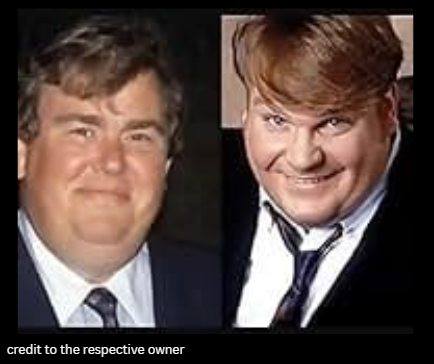During the freezing Midwest winter of 1987, while filming Planes, Trains and Automobiles, Steve Martin noticed something remarkable about John Candy. Amid the relentless cold and swirling snow, Candy’s quiet kindness changed the mood on set. Unlike many stars who retreated to warm trailers during breaks, John often stayed outside—chatting with crew members, boosting morale, and handing out cups of freshly brewed coffee he’d personally arranged after discovering the catering truck only had lukewarm drinks.
But Candy’s generosity was no one-time gesture. On the set of Uncle Buck (1989), he noticed younger crew members surviving on vending machine snacks because the meal budget favored the lead actors. Without seeking recognition, Candy quietly hired a hot food truck at his own expense to ensure everyone had a warm meal during those long shoots.
When Chris Columbus worked with him on Only the Lonely (1991), he saw that same compassion firsthand. Candy made it a point to learn every crew member’s name by the third day, greeting each person personally every morning and thanking them with a handshake at day’s end. If a birthday slipped by unnoticed, Candy would secretly organize cake and music so no one felt forgotten.
His humility was shaped by his early days at Toronto’s Second City in the 1970s, where he worked every backstage job imaginable—hauling gear, cleaning up, lending a hand wherever needed. That grounding taught him no role was too small and no person undeserving of respect.
On the set of Splash (1984), when a sudden downpour sent everyone scrambling for cover, Candy stayed behind to help protect valuable equipment, cracking jokes to keep spirits high and literally saving thousands of dollars in gear with his hands-on effort.
The Great Outdoors (1988) posed another challenge: during a late-night shoot stretching into the early morning, Candy noticed crew members shivering. Quietly, he arranged heaters and blankets at his own cost, making sure no one suffered when a simple solution was within reach.
John also rejected special treatment. On a remote location shoot, learning the crew had to fly coach while the stars enjoyed first class, Candy swapped seats with a fatigued camera assistant—never announcing it, simply doing what was right.
John Candy’s legacy isn’t just about his laughter or unforgettable roles. It’s about the warmth, generosity, and humanity he extended to everyone around him—especially those often overlooked in Hollywood. He gave up his trailer when wardrobe needed it, covered overtime for exhausted crew, and consistently lifted up the people behind the scenes.
He never sought praise or public recognition for these acts. For John, true success was about raising others as you rise.
In a world obsessed with stars, John Candy made every person on the team feel like one.
